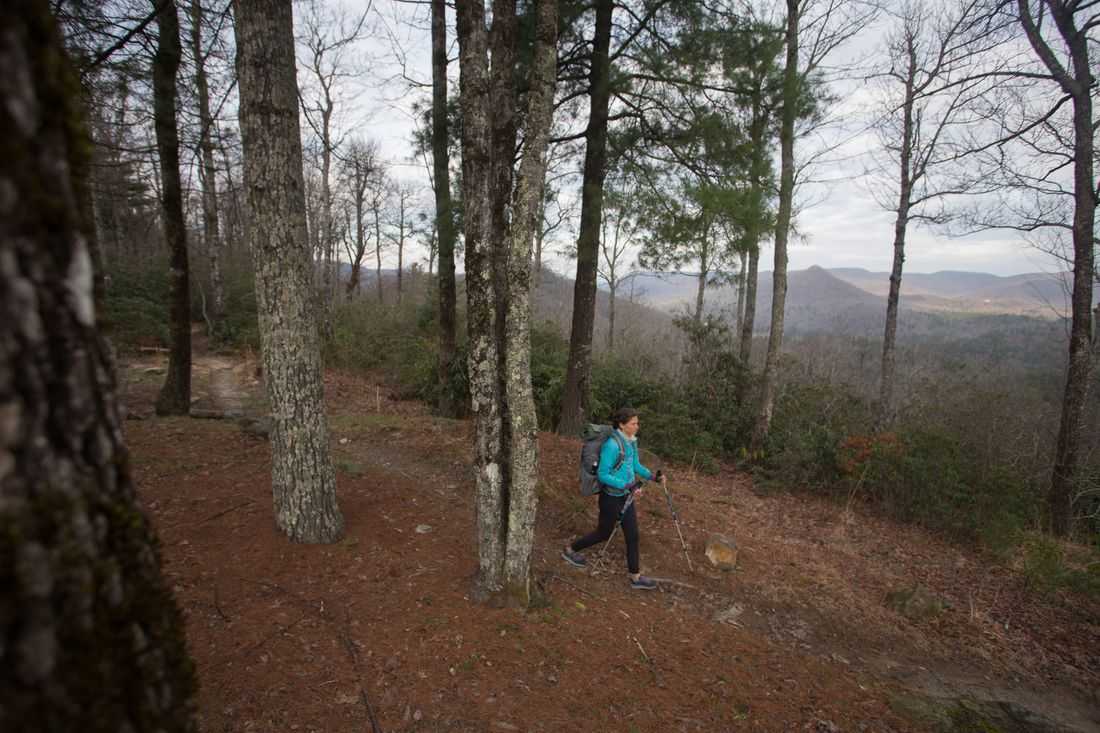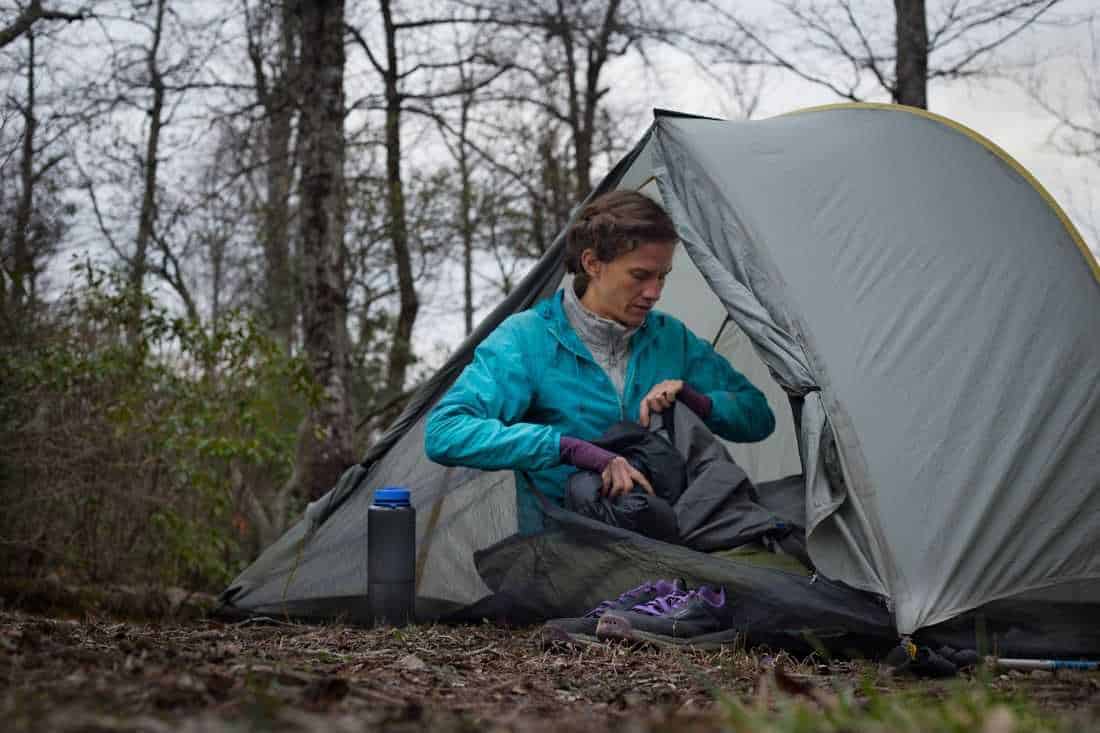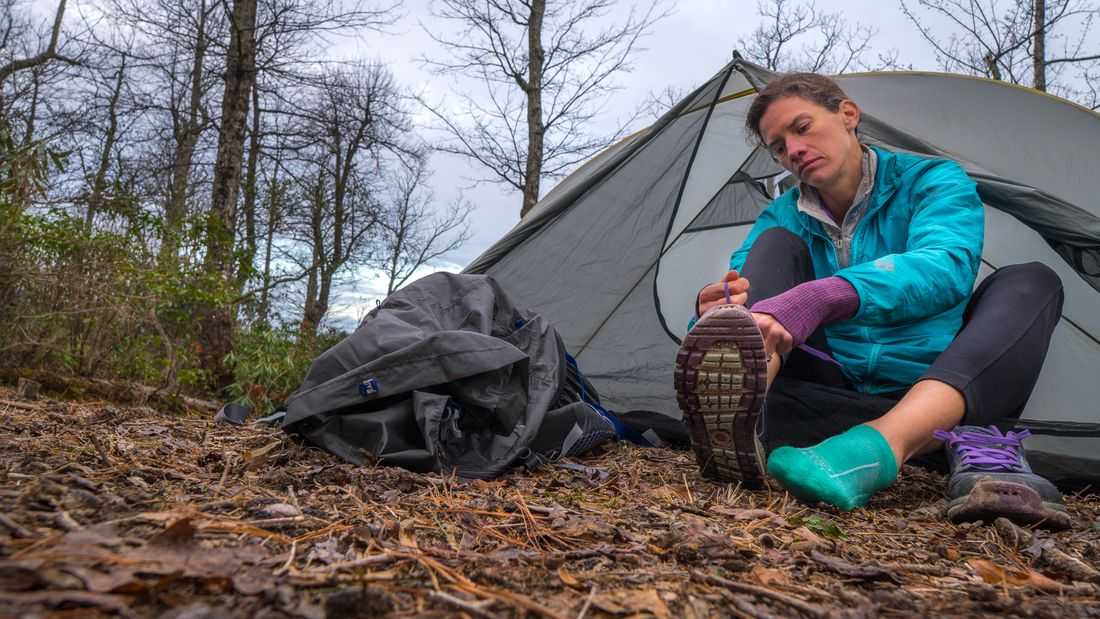The Top Five Mistakes Thru Hikers Make

Written by Astral & Jennifer Pharr Davis
Making mistakes is a healthy part of any thru hike. You can’t successfully backpack over 2,000 miles without making tweaks and adjustments to your original plan. Whether it be your itinerary, gear, or mindset something along the route will be forced to change if you want to continue forward.
One of the aspects that I love most about the trail is that it makes you accept your mistakes and learn from them in order to continue forward. The trail is not a place to be perfect, but it is a good place to be smart. And, since you are guaranteed to make mistakes out there, why not learn vicariously from other thru-hikers in order to limit your learning curve.
Here are the Five Most Common Mistakes a Thru Hiker will make…
1. Carrying too Much Weight
The most common mistake thru hikers make is to carry too much weight when they start the trail. I’m not against big or heavy packs and I don’t believe that lightweight backpacking is superior to hiking and camping with a sixty-pound pack (at least not for everyone). But, you have to earn the right to carry a heavy pack safely. Too much weight, in the beginning, means extra stress and pressure on your joints and a higher likelihood of injury. Every additional pound in your pack makes your transition into thru hiking that much harder. Start as a minimalist by only carrying the absolute essentials. Once you start to get in shape if you want to add an ukulele or a cast iron skillet then go for it!
2. Hiking too Far or too Fast too Soon
If you look at my hiking resume, which includes a 46-day traverse of the Appalachian Trail, it is clear I don’t have any problem with long days and big miles on the trail. That said, on the first days of my first backpacking trying to go ten miles kicked my butt. Much like adding weight to your pack, you also have to earn the right to add miles to your day.
When you start a long trail with an overly ambitious itinerary you have a higher risk of sustaining an overuse injury. Use those first few weeks to get in trail shape, become proficient with your camp chores, and learn how to properly fuel your increased energy expenditure. When you start to feel comfortable and competent with backpacking then you can up your miles.
On a similar note, try not to hike too quickly. The slow and steady hikers typically collect more miles during the day than the individuals who race down the trail. And if you do want to pick up the pace, then focus on hiking quickly on flat and uphill sections. Accelerating downhill puts a huge amount of stress on your knees.
3. Overestimating Gear
Gear is important, but it will not get you down the trail if your feet and your mind are not up for the task. It is great to research equipment and invest in quality gear, but it should be prioritized after researching terrain and skills and preparing mentally and physically for your hike.
The best backpack in the world isn’t going to matter if you are not physically able to hike up a mountain… or read a map when you feel lost… or plan correct food drops and resupply points along the route… and if you’re not mentally prepared to hike through the rain or go days without a shower then again, the backpack is not going to matter.
Far too many hikers spend hours and days sitting behind a computer and reading gear reviews. I recommend that you reward yourself with online shopping comparisons after taking a hike, learning navigation, and looking at maps and guidebooks for your upcoming treks.
And when you research gear, don’t just look at the brand’s description, be sure to look for feedback and reviews from experienced hikers. Websites such as www.Bugaboo.io can be extremely helpful as it offers a collection of gear lists from different hikers on different trails.

4. Finding the Right Footwear
Now, that we’ve established that gear won’t get you there. It’s important to qualify that choosing the right gear can help keep you safer and more comfortable on the trail.
People always ask me, “What’s the most important piece of gear?”
I say, “It all important or I wouldn’t carry it!” However, finding the right footwear is crucial to your success. Other gear mostly impacts camping comfort and potential trail scenarios, but you will feel your footwear with every step. And, I have seen far too many hikers hobble down the trail with deep blisters and lost toenails that could easily be prevented.
Unless you are heading out to a technical trail with severe weather you do NOT need restrictive leather boots or waterproof shoes. Instead, opt for comfort. Look for lightweight breathable trail shoes that resemble sneakers more than footwear for Mount Everest. These days the more flexible, breathable, shoes still offer support and good tread, but you don’t have to spend weeks breaking them in or days waiting for them to dry after a rainstorm or river crossing.
The right socks can also be as important as the right shoe. Hikers and backpackers are prone to moisture-related foot problems. But you can guard yourself against potential trench foot with a moisture-wicking wool blend sock. (And maybe some Gold Bond powder for good measure.)

5. Skipping the Shakedown Hike
Taylor Swift wants you to “Shake it Off.” I want you to Shake it Down! A shakedown hike is a term for hitting the trail before your intended adventure – with all your intended gear. It’s a practice run and most of the time it results in people culling gear from their pack or tweaking the itinerary for their upcoming trip.
So, pack your backpack with the gear you plan to use and then head out to a nearby trail. Get comfortable hiking with the weight of your pack on uneven terrain and then test your gear by camping overnight.
This is the time to get used to your camp stove, become proficient with water filters, and figure out how to hang a bear bag or store food overnight. Even if you’re not forced to use specific skills on a shakedown hike it is a great time to run through possible scenarios. I highly recommend practicing setting and taking down your tent in the dark because this scenario is more common than folks might like on the trail.
The good news about the Five Most Common Mistakes that Thru Hikers make is that they are all avoidable. While you are guaranteed to experience mishaps when you head out on a backpacking trip, you can save yourself some time, pain, and frustration by limiting your weight, miles, and pace as well as embracing the proper planning, preparation, and footwear!
Happy Trails Y’all!
Jennifer Pharr Davis is a hiker, author, speaker, National Geographic Adventurer of the Year, and AHS Ambassador who has covered over 14,000 miles of long-distance trails on six different continents.
